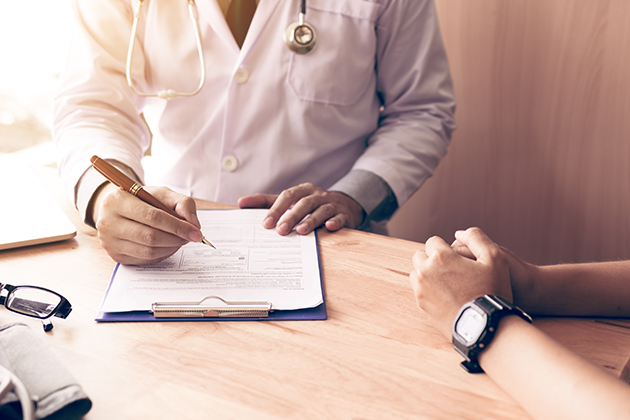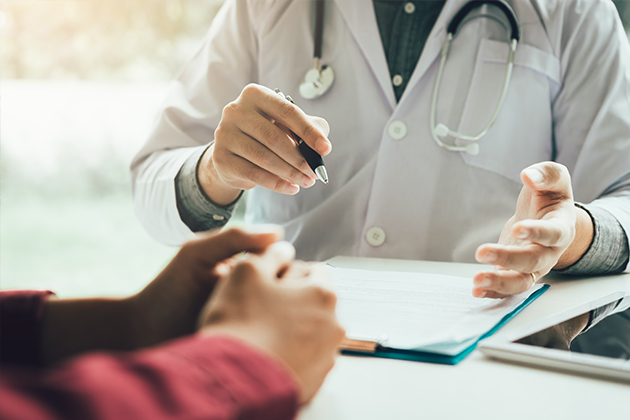
When you move to another country you’ll be looking for all the information you can get on some essential issues, such as the lifestyle and how the education and health systems work. Here we tell you all you need to know about the Portuguese health system.
Public system
This is dependent on the State, through the National Health Service (SNS) and is used by most of the country’s population. The SNS covers the population of mainland Portugal, includes the entire range of primary and differentiated health care. Everybody is entitled to it.
This SNS health care is provided by a variety of entities:
- A network of health centres (ACES): these are responsible for primary health care in local communities. Each group covers a number of health centres, which are the basic SNS units which people can go to for any non-urgent health care issues. They are staffed by family physicians and general practitioners, public health doctors and nurses, but also social service professionals, oral hygienists, environmental health technicians, nutritionists and psychologists. This is where people go for routine check-ups, nursing appointments, family planning and all the vaccines included in the National Vaccination Programme. The health centre generally covers the same area as a municipality;
- Local health units (ULS): a single integrated system, responsible for provision of primary and differentiated health care, which includes all the health centres and hospitals in the same region or city;
- Hospitals: mostly provide differentiated health care. Most are part of hospital centres, which administer several hospitals in the same city or region.
Public Hospitals in Lisbon
- Hospital de Santa Maria
Avenida Professor Egas Moniz, 1649-035 Lisboa - Hospital Pulido Valente
Alameda das Linhas de Torres, 117 1769-001 Lisboa - Hospital de São Francisco Xavier
Estrada do Forte do Alto do Duque, 1449-005 Lisboa - Hospital de Egas Moniz
Rua da Junqueira, 126, 1349-019 Lisboa - Hospital de Santa Cruz
Avenida Professor Dr. Reinaldo dos Santos, 2790-134 Carnaxide - Hospital de São José
Rua José António Serrano, 1150-199 Lisboa - Hospital de Santo António dos Capuchos
Alameda Santo António dos Capuchos, 1169-050 Lisboa - Hospital Santa Marta
Rua de Santa Marta, 1169-024 Lisboa - Hospital Dona Estefânia (for children)
Rua Jacinta Marto, 1169-045 Lisboa - Hospital Curry Cabral
Rua Beneficência 8, 1050-099 Lisboa - Hospital Beatriz Ângelo
Avenida Carlos Teixeira, 514 Loures - Hospital Professor Doutor Fernando Fonseca
IC19, 2720-276 Amadora - Hospital de Cascais Dr. José de Almeida
Avenida Brigadeiro Victor Novais Gonçalves, 2755-009 Alcabideche
Public Hospitals in Porto
- Hospital de São João
Alameda Professor Hernâni Monteiro, 4200-319 Porto - Hospital de Santo António
Largo do Professor Abel Salazar, 4099-001 Porto - Hospital de Magalhães Lemos
Rua Professor Álvaro Rodrigues, 4149-003 Porto
Public Hospitals in the Algarve
- Hospital de Faro
R. Leão Penedo, 8000-386 Faro - Hospital de Portimão
Estr. do Poço Seco, 8500-338 Portimão - Hospital de Lagos
Rua do Castelo dos Governadores 14, 8600-563 Lagos
How to get access to the National Health Service
As a resident in Portugal, to access the SNS you need to have a user’s number. This number can be obtained at your local health centre or at a Loja do Cidadão. You will need to present proof of residence in Portugal.
If you are a European Union, European Economic Area or Swiss citizen, you should request an S1 document in your country of origin. This form entitles you to health care in Portugal, even if you are covered by a social security system in another European Union or European Economic Area country, or Switzerland. This document should be handed in at your local Social Security District Centre (CDSS). You will be given a copy, which you should take to your health centre and request your user’s number. Regardless of whether you are a resident or just passing through the country, this will give you access to the SNS.
If you are a Brazilian citizen and are only in Portugal for a short time, you are entitled to use the SNS. All you need is a Certificate of Right to Medical Assistance – CDAM (or P4), issued by the Brazilian Health Ministry. This certificate is free and gives Brazilians the same rights to public health care as Portuguese citizens, and vice-versa. If you live legally in Portugal and you are over 18, you can also request the Equal Rights and Duties Statute, which gives you access to the SNS.
User charges
The SNS has a small cost: user charges. A regular doctor’s appointment, for example, costs €4,50. A specialist appointment costs €7 and an emergency appointment costs €18.
However, some people are exempt of these charges, such as people under 18, the unemployed or people with a degree of disability above 60%, for instance.
Private system

The private sector is dependent on large private groups which manage hospitals, clinics or both. These are more expensive than the SNS. However, the cost can be lower if you have health insurance, which covers a percentage of all you spend in private hospitals or clinics.
The advantage of the private system is that you can be seen more quickly – and with health insurance for more or less the same cost – since it can take a long time to get an appointment at a public hospital.
Private hospitals in Lisbon
Private hospitals in Porto
Private hospitals in the Algarve
Besides these, there are some charitable hospitals, run by private charities, namely by the Santa Casa da Misericórdia. Many of these have agreements with the SNS and receive public funding.
Health subsystems
There are various public and private health subsystems which serve ministries, banks, insurance companies and other institutions and which provide services to their employees and associates.
Some of these subsystems have their own establishments, where their members can benefit from services directly, such as the Armed Forces Hospital or the SAMS Hospital and clinics network.